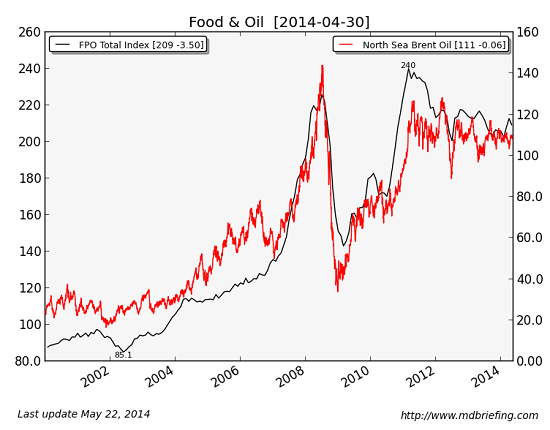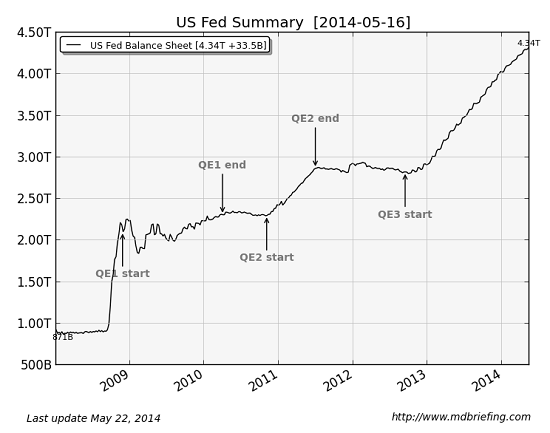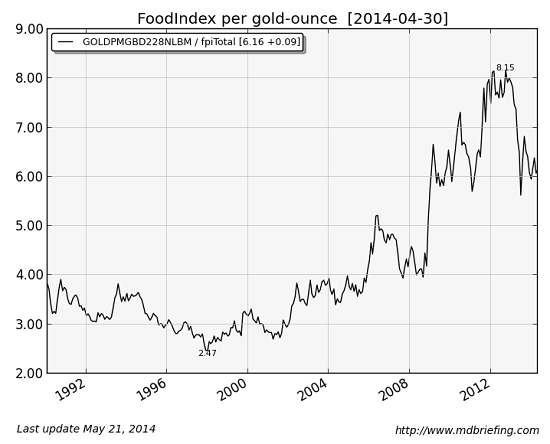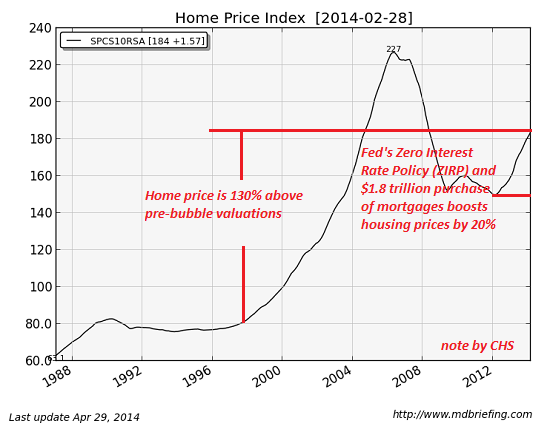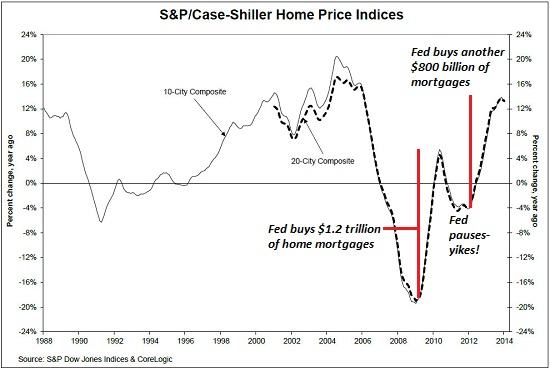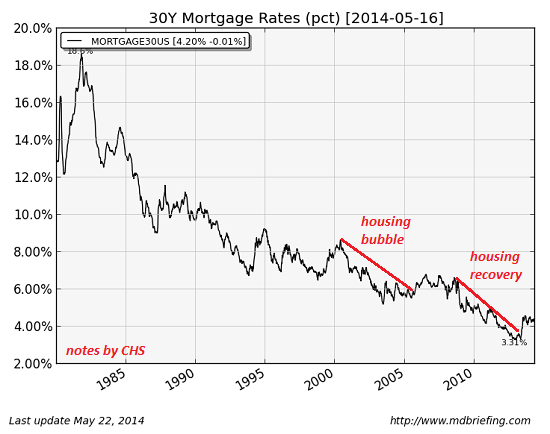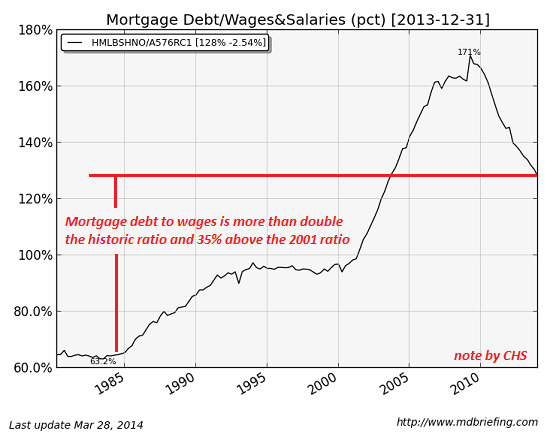The individual or system that never experiences dissent, volatility or stress is systemically unhealthy and increasingly prone to sudden "gosh, I didn't see this coming" collapse.
To say that volatility, stress, dissent are not just healthy, but essential for maintaining health sounds counter-intuitive. On an individual level, we try to avoid exertion, stress and crisis, and on a larger systemic level, our institutions devote enormous resources to minimizing systemic volatility and suppressing dissent.
In other words, the notion that stress and dissent are to be avoided is scale-invariant: it works the same for individuals, households, enterprises, economies, governments and empires.
What got me thinking about this was some recent research that suggests short bursts of physical exertion several times a day yields the equivalent positive results as 20+ minutes of strenuous workout in the gym.
Doing some strenuous exercise for 60 seconds a few times of day appears to trigger the same immune response and repair systems that longer duration exercise engenders.
Why does this matter? On a practical level, many of us have a hard time finding time to go to a gym every day. Those of us over 50 find that sustained vigorous exercise increases the odds of injury.
On a natural-selection level, the benefits arising from short bursts of strenuous exercise fits into our basic survival need to be ready to sprint, lift a heavy object, etc., that is, perform some brief exertion to escape danger or obtain the necessities of life.
In the hunter-gatherer world that shaped the human genome, calories are too scarce to squander on 20+ minutes a day of vigorous workout; the payoff simply isn't worth the costly expenditure of calories.
So the fact that three 60-second bursts of exertion are enough to maintain strength and endurance makes sense in a natural-selection analysis in which the minimum number of calories are consumed to maintain the optimum sustainable fitness for survival.
There is another form of survival fitness, of course, the ability to walk/jog for miles/kilometers a day, day after day. We clearly need both types of fitness to be resilient and healthy.
The key to the benefits of short bursts of exertion (fort example, 50 jumping jacks or 20 burpees, etc.) is that this stress signals the body to rebuild muscle tissue and activate multiple immune responses to the damage caused by the exertion.
In terms of systems, stress, volatility and dissent are essential because only these forces trigger systemic reform, repair and rebuilding.
Anecdotally, I've found that a regime of brief exertions maintain strength despite significant gaps in sustained exercise; missing a week or so (due to illness, travel, etc.) doesn't degrade one's core strength much, once a certain level of fitness is reached.
Exertion also stresses the heart-lung systems, in effect pushing all the major systems out of low-volatility steady-state default settings.
This aligns with what we've learned about how systems respond when feedback and information is limited or suppressed. This is one of the key insights of Nassim Taleb's work on black swans and risk. In manipulating systems to maintain a steady-state of financial stability, the Federal Reserve and the central state have doomed the entire system to collapse.
The same can be said of a political system that suppresses dissent, punishes whistleblowers and treats its entire citizenry as potential enemies of the state: the greater the suppression of dissent and transparency, the greater the certainty of eventual crisis and collapse.
In effect, the central state/bank insure the economy and society have lost the ability to respond positively to volatility and stress. Suppressing dissent and volatility guarantee systemic failure and collapse.
Taleb explained why in the June 2011 issue of Foreign Affairs: “Complex systems that have artificially suppressed volatility become extremely fragile, while at the same time exhibiting no visible risks.”
As Taleb has explained, the very act of suppressing volatility and dissent renders systems extremely prone to large-scale disruptions that are viewed as low-probability events, the infamous “black swans.”
In terms of human health, the systemic fragility that arises from a low-exertion lifestyle is masked by steady-state normalcy that appears superficially low-risk. The fragility is only revealed when the individual does some strenuous work, and the brittle systems are unable to respond to the stress and fail (for instance, a heart attack).
Political economies in which dissent, volatility and the stress of financial panics have been suppressed or eliminated by manipulation (for example, allowing banks to mark their assets to fantasy rather than to the market value of the assets) become increasingly fragile, as the repair/reform responses triggered by stress, dissent and volatility have been systematically eliminated.
In a healthy economy, dissent and the volatility of market-clearing insolvency act just like bursts of exertion, stressing the system enough to trigger repairs/reforms. Stripped of these signals, the systems ossify and become too brittle to absorb the shock of dissent/volatility/stress when these forces break through centralized suppression.
Diseases such as diabetes seem to be fostered by a steady-state lifestyle of a corrosive diet and no strenuous exercise. Since no signals of repair/reform are triggered, the individual/household/enterprise/economy gets more brittle and prone to failure with every passing day, even as risks of collapse appear minimal on the surface.
(It is important to note that anyone who is out of shape cannot just jump into a routine of strenuous exercise. Resilience, flexibility, strength and endurance must be built up slowly over time. Check with a doctor who is familiar with your medical history before starting a fitness program.)
The individual or system that never experiences dissent, volatility or stress is systemically unhealthy and increasingly prone to sudden "gosh, I didn't see this coming" collapse. The individual who walks daily (i.e. aerobic exercise) is healthier than the couch potato, but the individual who routinely engages in short bouts of strenuous activity has the added benefits of triggering rebuilding/repair responses.
Political economies, government agencies, enterprises and communities are no different, as all systems respond the same way: either growing brittle and vulnerable by suppressing dissent and volatility or maintaining strength, resilience and adaptability by encouraging dissent and volatility.
Our centralized government and bank have spared no expense to ruthlessly suppress these essential forces of healthy systems at every turn. The cost of their gross incompetence has yet to be paid, but it will be paid, and in full, in the years ahead.
This essay was drawn from Musings Report 8. The Musings Reports are sent weekly to subscribers and major contributors.
Want to give an enduringly practical graduation gift? Then give my new book Get a Job, Build a Real Career and Defy a Bewildering Economy, a mere $9.95 for the Kindle ebook edition and $17.76 for the print edition.
Get a Job, Build a Real Career and Defy a Bewildering Economy(Kindle, $9.95)(print, $20)

Are you like me? Ever since my first summer job decades ago, I've been chasing financial security. Not win-the-lottery, Bill Gates riches (although it would be nice!), but simply a feeling of financial control. I want my financial worries to if not disappear at least be manageable and comprehensible.
And like most of you, the way I've moved toward my goal has always hinged not just on having a job but a career.
You don't have to be a financial blogger to know that "having a job" and "having a career" do not mean the same thing today as they did when I first started swinging a hammer for a paycheck.
Even the basic concept "getting a job" has changed so radically that jobs--getting and keeping them, and the perceived lack of them--is the number one financial topic among friends, family and for that matter, complete strangers.
So I sat down and wrote this book: Get a Job, Build a Real Career and Defy a Bewildering Economy.
It details everything I've verified about employment and the economy, and lays out an action plan to get you employed.
I am proud of this book. It is the culmination of both my practical work experiences and my financial analysis, and it is a useful, practical, and clarifying read.
Test drive the first section and see for yourself. Kindle, $9.95 print, $20
"I want to thank you for creating your book Get a Job, Build a Real Career and Defy a Bewildering Economy. It is rare to find a person with a mind like yours, who can take a holistic systems view of things without being captured by specific perspectives or agendas. Your contribution to humanity is much appreciated."
Laura Y.
| Thank you, Herb S. ($150), for your outrageously generous contribution to this site -- I am greatly honored by your longstanding support and readership. | | Thank you, Timothy T. ($5), for your much-appreciated generous contribution to this site -- I am greatly honored by your support and readership. |
Read more...
 Are you like me? Ever since my first summer job decades ago, I've been chasing financial security. Not win-the-lottery, Bill Gates riches (although it would be nice!), but simply a feeling of financial control. I want my financial worries to if not disappear at least be manageable and comprehensible.
Are you like me? Ever since my first summer job decades ago, I've been chasing financial security. Not win-the-lottery, Bill Gates riches (although it would be nice!), but simply a feeling of financial control. I want my financial worries to if not disappear at least be manageable and comprehensible.



















